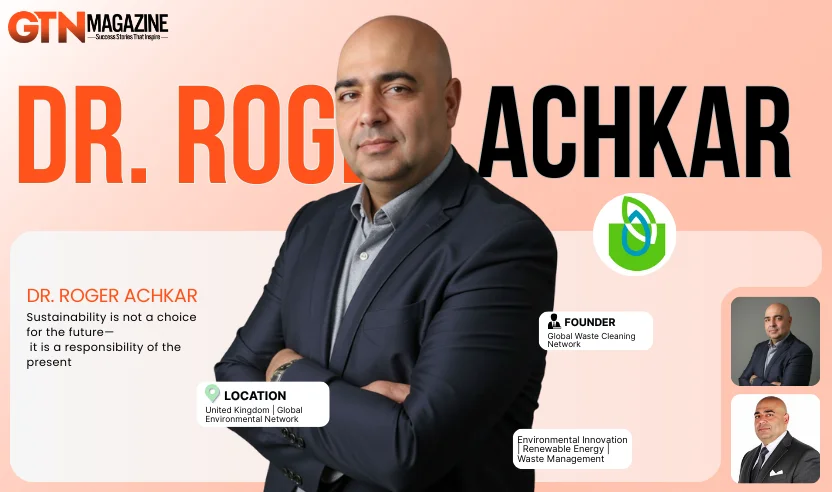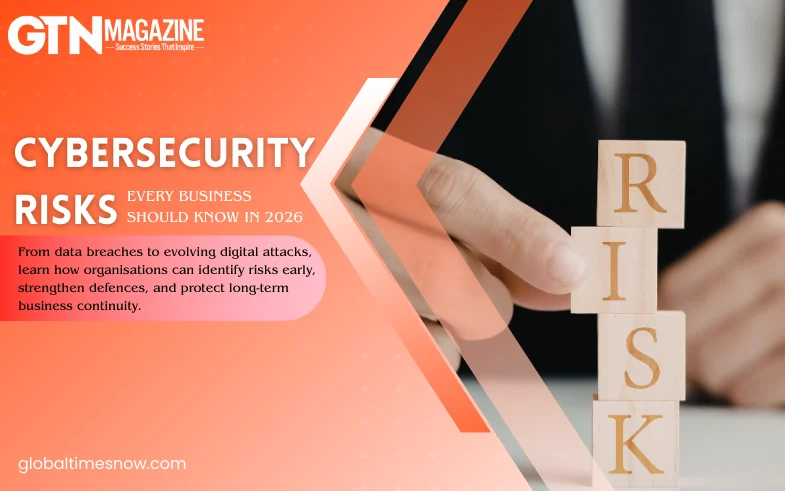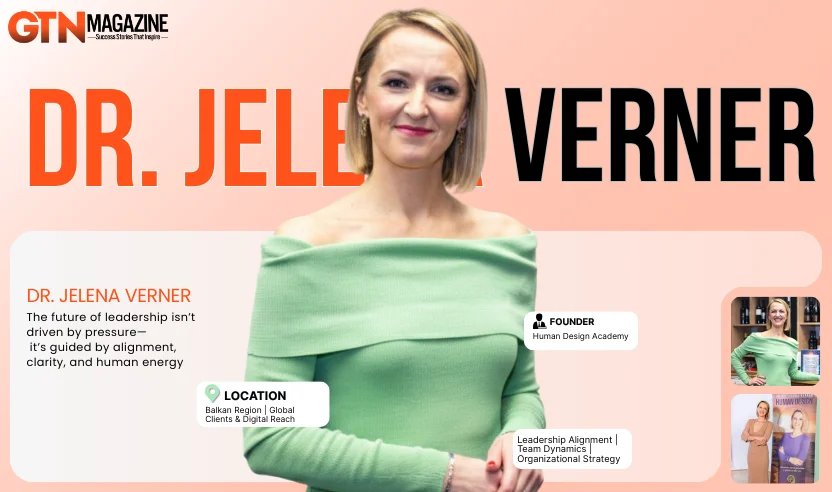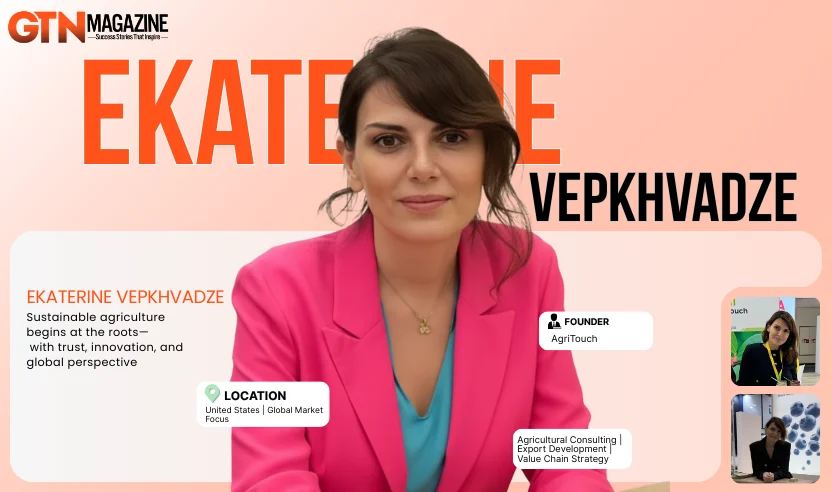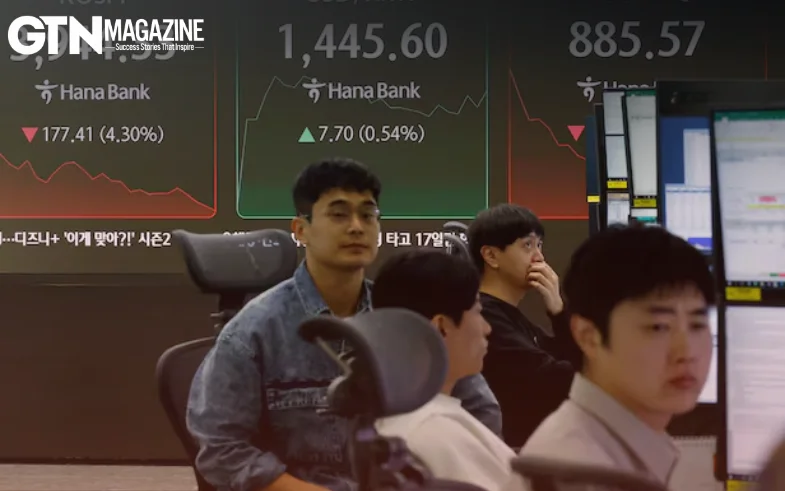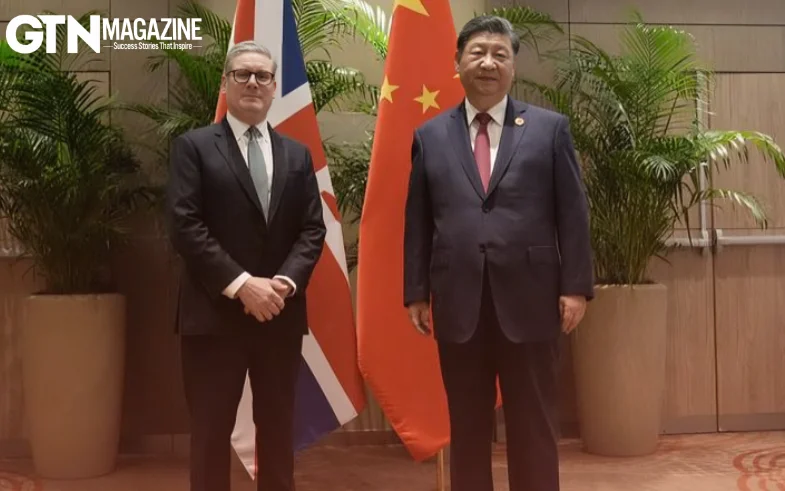Tackling environmental challenges requires vision, determination, and a collaborative spirit. Dr. Roger Achkar embodies these qualities through his relentless efforts to promote sustainability and innovative solutions in waste management and renewable energy. As the founder of the Global Waste Cleaning Network (GWCN), a UK-based organization that stands as the world’s largest and most widespread environmental and energy network, he has been at the forefront of promoting sustainable practices and addressing global environmental challenges.
In this insightful discussion, Dr. Achkar shares the inspiration behind founding GWCN and the crucial role of community engagement in environmental sustainability. He delves into the impact of education in fostering awareness, the advancements in sustainable technologies, and the significant role that governments must play in shaping a greener future.
He also provides an in-depth perspective on the evolving global energy transition and how technology is revolutionizing conservation efforts. Looking ahead, Dr. Achkar outlines his vision for GWCN, his aspirations for mentoring future environmental leaders, and his unwavering commitment to driving meaningful change. His journey is a testament to the power of innovation, education, and collaboration in building a sustainable world for generations to come.
The Inspiration Behind GWCN
Dr. Achkar, can you tell us about the inspiration behind founding GWCN?
The inspiration stemmed from a deep-seated concern for the environment and the urgent need to address global waste management challenges. My background in energy, waste management, and social science made me acutely aware of these pressing issues. I envisioned a platform that would unite experts, organizations, and communities to collaborate on sustainable solutions. The goal was to create a network that could leverage collective expertise and resources to drive meaningful change.
The Power of Community Engagement
How important is community involvement in achieving environmental sustainability goals?
Community involvement is essential for achieving environmental sustainability. Grassroots initiatives and local actions can have a profound impact on conservation efforts. When communities unite to tackle environmental challenges, they implement practical, localized solutions tailored to their specific needs. Community engagement fosters a sense of ownership and responsibility, encouraging individuals to embrace sustainable practices in their daily lives. By working collectively, communities can create a ripple effect that significantly contributes to broader environmental goals.
Education: A Key to Sustainability
Can you elaborate on the role of education in promoting environmental sustainability?
Education is fundamental to promoting environmental sustainability. It empowers individuals with the knowledge and skills necessary to make informed decisions and take responsible actions. By integrating environmental education into school curricula, we nurture a generation that values and understands sustainability. Additionally, offering workshops and training programs equips professionals with the expertise to incorporate sustainable practices into their work. Education also plays a crucial role in raising awareness and transforming public attitudes towards environmental issues. It fosters a sense of responsibility and encourages people to adopt eco-friendly habits in their everyday lives.
Innovations in Sustainable Technology
What innovations in sustainable technology are you most excited about?
Several innovations in sustainable technology excite me. Advances in energy storage, such as next-generation batteries and supercapacitors, have the potential to revolutionize the way we store and utilize renewable energy. Additionally, breakthroughs in carbon capture and utilization technologies offer promising solutions for reducing atmospheric CO₂ levels. I am also enthusiastic about the potential of green hydrogen as a clean energy source and the progress being made in sustainable agriculture technologies, which can help mitigate the environmental impact of food production.
Technology’s Role in Conservation
How do you see the role of technology in advancing environmental conservation efforts?
Technology plays a crucial role in environmental conservation efforts. From advanced waste processing techniques to renewable energy innovations, technological advancements are driving significant progress. At GWCN, we leverage technology to enhance research capabilities, improve waste management processes, and develop sustainable energy solutions. The integration of AI and data analytics is instrumental in optimizing operations and achieving better outcomes. For example, AI can analyze waste patterns to develop more efficient recycling systems. Additionally, technology enables real-time environmental monitoring, allowing for quicker and more effective responses to emerging challenges.
The Role of Governments in Sustainability
What role do you believe governments should play in promoting environmental sustainability?
Governments play a pivotal role in promoting environmental sustainability by implementing policies and regulations that encourage sustainable practices. This includes setting ambitious targets for reducing greenhouse gas emissions, providing incentives for renewable energy adoption, and investing in green infrastructure. Governments should also prioritize environmental education and awareness campaigns to foster a culture of sustainability. By leading by example and collaborating with the private sector and civil society, they can drive significant progress toward global environmental goals.
The Future of Global Energy Transition
How do you see the global energy transition unfolding in the next decade?
The global energy transition is accelerating, driven by technological advancements, policy shifts, and increasing environmental awareness. Over the next decade, we will witness a substantial shift toward renewable energy sources such as solar, wind, and hydroelectric power. This transition will be supported by advancements in energy storage technologies, making renewables more reliable and accessible. Additionally, the electrification of transportation and the development of smart grids will play crucial roles in reducing dependence on fossil fuels and lowering carbon emissions.
Envisioning a Greener Tomorrow
How do you envision the future of environmental conservation?
I envision a future where environmental conservation is seamlessly integrated into every aspect of life. This means industries adopting sustainable practices, governments prioritizing environmental policies, and individuals making conscious efforts to reduce their ecological footprint. With the right combination of technology, education, and collaboration, we can drive significant positive change. The key is to maintain a sense of urgency and a commitment to continuous improvement. I remain optimistic that we can build a future where economic development and environmental sustainability coexist harmoniously.
Future Plans for GWCN and Personal Aspirations
What are your future plans for GWCN and your personal aspirations?
At GWCN, we aim to expand our reach and impact by launching new initiatives and forging strategic global partnerships. We are also working on enhancing our research capabilities and developing innovative technologies that align with our mission. Personally, I am committed to continuing my research in sustainable energy and environmental conservation. Additionally, I aspire to mentor the next generation of environmental leaders, inspiring them to carry forward the mission of creating a cleaner, more sustainable world. I am also in the process of writing a book that will share my experiences and insights in the field, with the hope of motivating others to join the cause.
Advice for Aspiring Environmental Leaders
What advice would you give to young professionals aspiring to make a difference in the field of environmental conservation?
My advice is to stay passionate and committed to your cause. Environmental conservation is a challenging yet immensely rewarding field. Continuously educate yourself, stay updated with the latest advancements, and embrace innovation. Collaboration is key—build strong networks with like-minded individuals and organizations. Remember, every small effort contributes to a larger impact. Patience and resilience are essential, as progress in this field can sometimes be slow. Above all, keep the bigger picture in mind and stay focused on your long-term goals.
A Call to Action for Environmental Conservation
What message would you like to convey to our readers about the importance of environmental conservation?
Environmental conservation is not solely the responsibility of governments and organizations—it is a collective effort that requires participation from everyone. Small actions, such as reducing waste, conserving energy, and supporting sustainable products, can collectively lead to a significant impact. It is crucial to stay informed, proactive, and committed to addressing environmental challenges.
Conclusion
Dr. Roger Achkar’s unwavering commitment to environmental sustainability serves as a powerful reminder that real change begins with passion, knowledge, and collaboration. Through his leadership at GWCN, he continues to drive impactful initiatives that bring together experts, communities, and organizations to create sustainable solutions for a better future.
His insights on the role of education, technology, and policy in environmental conservation highlight the multifaceted approach needed to address global challenges. As he looks ahead, his vision for innovation, mentorship, and global partnerships reinforces the importance of collective action in shaping a cleaner, greener world.
Dr. Achkar’s journey is an inspiration for aspiring environmental leaders and professionals who seek to make a difference. His message is clear—every effort, no matter how small, contributes to a larger movement toward sustainability. With the right mindset and dedication, a lasting impact on the planet is within our reach.
You may also like:-



